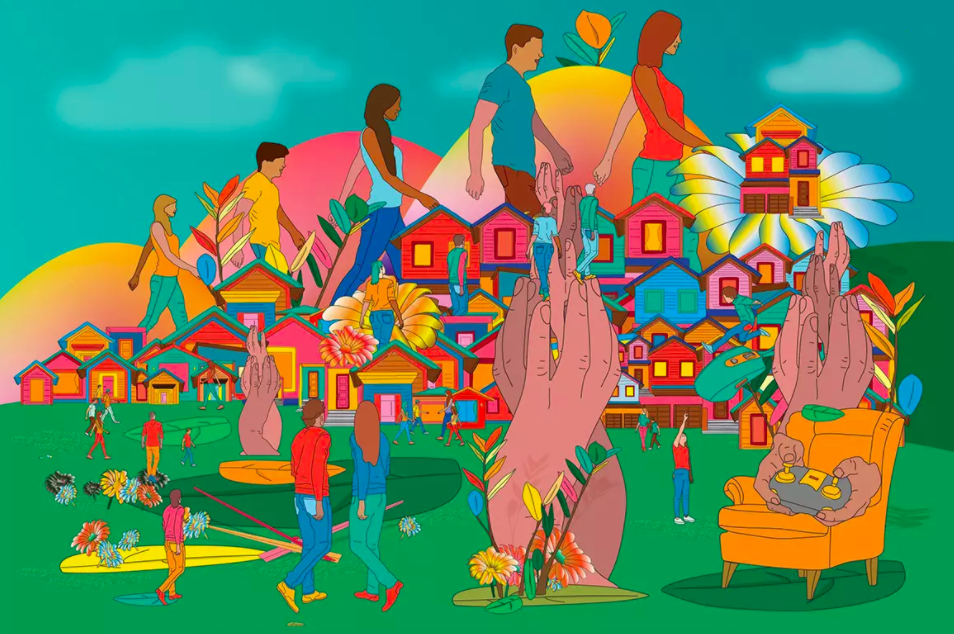Play On: Tapping into Gaming's Mental Health Benefits
Online gaming unlocks new opportunities for health and well-being when gathering in person isn’t an option.

By Melanie Ehrenkranz
I haven’t seen one of my closest friends in nearly three months. He lives a short walk from me, but because of our current socially distant reality, the closest I’ve come to seeing his face is looking at the avatar he designed for the game Animal Crossing: New Horizons. When my phone pinged with a GIF he sent me showing off his avatar’s new outfit — a suit and a monocle — for a second, it made me feel a little closer to him in a way I hadn’t in quite some time.
“I can’t imagine a better game to get people through a time of isolation,” says Ken Wong, Animal Crossing fan and lead designer of the architectural puzzle game Monument Valley. “It allows players to visit each other’s homes in virtual space, and to give gifts and send messages to each other. All the activities in the game — from fishing to gardening to decorating your home — are designed to be relaxing and therapeutic.”
Animal Crossing: New Horizons launched in March and immediately became a best-seller, with 13.41 million copies sold in its first six weeks — one of a number of record-breaking milestones in game play, viewing, and engagement during the pandemic. Verizon reported a 75% increase in gaming data usage in a single week in March, and viewers watched an unprecedented 3 billion hours of gaming on the streaming platform Twitch in the first quarter of 2020.
“Games had already been emerging as a space for health, self-expression, and social connection for many years,” Wong says. “I think the pandemic has accelerated certain trends that were already happening.”
A welcome connectionWhile Animal Crossing has been characterized as “the game for the coronavirus moment,” it’s just one very cute example of how our collective relationship to gaming — and the type of person we view as a gamer — has radically shifted. Far from the stereotype of a sedentary, isolating pastime, this uniquely challenging moment is shining a spotlight on gaming’s ability to build social bonds and boost mental health in trying times.
It also happens to be one of the safest ways for people to come together during a pandemic. The World Health Organization, which just last year recognized “gaming disorder” as an illness, is now encouraging gaming as a healthy physical distancing activity with its #PlayApartTogether campaign.
Along with benefits such as improvements in perception, attention, and cognitive abilities, new research has shown that gaming can help lower stress and improve mental well-being because the challenges gamers tackle help create a sense of control and camaraderie with others. In a recent OMEN by HP survey, respondents who started gaming during the COVID-19 crisis reported feeling nearly twice as connected, happy, and optimistic as non-gamers.
“We’ve got nutrition that feeds our body, and physical activity that builds our muscles,” says Judy Johnson, director of gaming and esports at HP. “Gaming has the health benefits that help feed our mind.”

